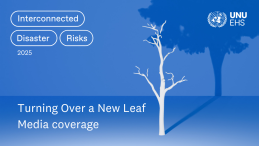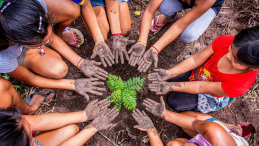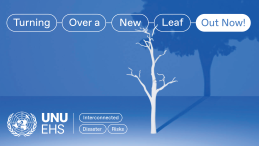In an increasingly interconnected and globalized world, COVID-19 has been a drastic reminder of the ever more cascading, complex and systemic nature of risks. Throughout the pandemic, the world has witnessed how COVID-19, often exacerbated by the concurrence of climate-related extreme events and natural hazards, has led to devastating direct and indirect impacts on societal systems. Against this background the United Nations University – Institute for Environment and Human Security (UNU-EHS), in collaboration with the United Nations Office for Disaster Risk Reduction (UNDRR) conducted the CARICO study, to document and characterize cascading and systemic risks and impacts linked to COVID-19. The overarching objectives of the first phase of CARICO were to (i) better understand the complex, systemic nature of risks cross different contexts and (ii) identify lessons for risk management. For more information about phase I see: CARICO interactive publication.
Building on the first phase of the CARICO project (2021-2022), its approach, methodology and key findings, UNU-EHS will conduct a ‘lesson learnt’ exercise from COVID-19 responses in the Southern African Development Community (SADC). The objective of the project will be to identify lessons for risk management and resilience building for future hazard and shock events, and to inform a COVID-19 recovery plan for the SADC region. The study will focus on two pilot countries (Malawi and South Africa), and a thematic lens will be placed on (i) informal contexts (notably the informal sector/livelihoods, informal housing as well as informal risk governance), (ii) gender aspects, and (iii) COVID-19 effects on cross-border collaboration in the SADC. The project is funded by the Deutsche Gesellschaft für Internationale Zusammenarbeit (GIZ).









